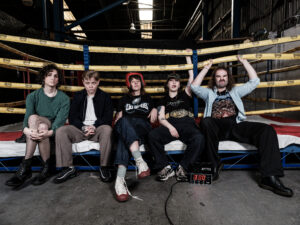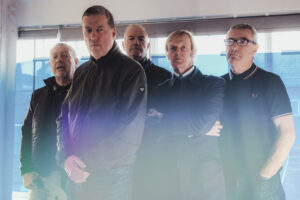RACHELS RUNDOWN #3 – WHY IT ISN’T AN ESTABLISHED BANDS JOB TO SAVE THE MUSIC SCENE

In recent months, I’ve found myself increasingly frustrated with social media, let’s face it, that’s nothing new is it? Ever since a particular band announced their reunion, my feeds have been inundated with discussions about who should support them and the expectation that “they should be helping new music” but why should they? No band should be burdened with the responsibility of “saving” the music scene. This must be the third article I’ve penned on the subject and deleted but after reading another thread tonight on the subject I’ve decided to bite the bullet.
Established bands helping newcomers in the music industry has always been a double-edged sword, offering both significant benefits and notable challenges. On the positive side, established bands can leave a lasting legacy by mentoring emerging artists, thereby influencing the next generation of musicians which is great. Collaborating with up-and-coming artists can introduce established bands to new audiences, expanding their listener base and increasing their exposure, which is undoubtedly beneficial and helpful. Emerging musicians naturally want to be associated with these well-known bands, as it can significantly boost their visibility, leading to more performance opportunities, media coverage, and fan engagement, which everyone upcoming band wants.
The downsides to consider for me personally is that associating with too many new artists or the wrong kind of acts can dilute the established band’s brand and confuse their fan base. If the reunion shows had been filled with new and upcoming bands, no matter how much I liked them, at those prices I’ll be honest, I’d have been gutted. I would not be there to discover new music, I’d be there to immerse myself in nostalgia of the fucking glorious 90’s. When a beloved band gets back together, it’s all about that and reliving those special moments, immersing yourself in the nostalgia of their music and similar bands from that time period. It’s a chance to reconnect with all the songs and memories that have meant so much to you over the years.
Look, I’m not disputing that discovering new music can be great, I spend my days doing it but sometimes you just want to enjoy the familiar tunes that have been the soundtrack to your life. It’s perfectly okay to want that experience without the added expectation of discovering new artists and you should not be slated for that. After all, those nostalgic moments are what make these reunions so magical!
I have witnessed and found also that when newcomers receive extraordinary opportunities early on, it can indeed lead to unrealistic expectations and when things don’t blow up like they thought they would it can result in depression and a feeling of failure. People automatically think that success will come easily with the help of a well-known band, but it doesn’t always and it can result in disappointment and frustration if things don’t go as planned. This dependency on others for exposure can also hinder their ability to develop their own identity and navigate the industry independently which all bands need to do.
Up-and-coming musicians need to realise that, while having support from well-known bands may be beneficial, it does not ensure success. I’ve seen some of the best upcoming bands support their heroes and still end up splitting up. Like many other occupations, success in the music business demands perseverance, dedication, and hard work. A big support slot is an added bonus and should be seen as such, I think this is where people may go wrong. Posting you’re supporting A, B or C looks great on your social media but in todays fast paced environment it will soon be old news and where does that leave you?
The histories of many famous musicians often include years and years of hard work, modest stage appearances, and progressively building a loyal fan base. This road not only builds character but also ensures that when success does come, it will be well-earned and long-lasting. New bands must understand that every action they take, no matter how small, brings them one step closer to their goals. By enjoying the journey and focusing on continuous improvement, up-and-coming artists may lay a solid basis for their careers. This approach prepares individuals for the highs and lows of the profession while also helping them develop a unique and authentic voice that resonates with audiences.
It’s extremely important to recognise that it isn’t necessarily the job of established artists to “save” the music scene. While their support can be incredibly valuable, the responsibility for the health and vibrancy of the music industry lies with a broader community, including record labels, promoters, venues, and fans. Well-known artists are free to assist if they so desire, but it shouldn’t be viewed as a duty, particularly if they have already done more than enough to support it in the past. I’m not against big artists supporting new talent, I’m all for it but for this particular reunion it needed to be left alone with more established support acts.
At the end of the day everyone has a part to play in fostering and maintaining the music scene. By banding together, the community can make sure that up-and-coming artists are found, encouraged, and honoured without putting excessive strain on more established performers to shoulder the load.

RACHEL BROWN




